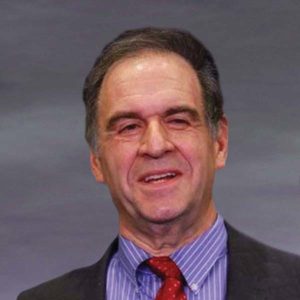
While living in Atlanta in the 1980s, I was fortunate to have gotten to meet the late Congressman John Lewis. Then, in the late 1990s he generously did me a huge favor. He helped lead the Georgia Congressional delegation in sponsoring an expedited IRS review of a leadership institute I was launching during a crisis.
I always wanted to thank him publicly for that and had been planning to do so last spring.
It didn’t happen. We missed the moment. Lewis, as a civil rights pioneer taught us much about voice, about courage, about integrity. And now, sadly, he’s now taught me another lesson—this one about timing.
Lewis was, of course, the founder of the Student Non-Violent Coordinating Committee, as well as one of the original 13 Freedom Riders, Black and White activists who, in 1961, challenged segregated interstate busses in the South in 1961. He was arrested 40 times and beaten badly in such protests.
He joined Martin Luther King Jr. to plan the historic March on Washington for Jobs and Freedom in 1963. He was last surviving speaker from that milestone event. On Sunday, March 7, 1965, he led a peaceful march across the Edmund Pettus Bridge in Selma, Alabama. He was among the protestors who were savaged by club-wielding police, suffering a severe skull fracture and other injuries. It wasn’t for nothing: The televised images helped accelerate the passage of the Voting Rights Act days later, freeing Black voters from the voter suppression of poll taxes and tests.
In Congress, he continued his battles for and domestic justice global human rights. “When you see something that is not right, not just, not fair, you have a moral obligation to say something, to do something,” he said on the House floor last year. “Our children and their children will ask us, ‘What did you do? What did you say?’”
He would have been entitled to leverage his early life heroism for later life comfort and riches but he never did so. He remained dedicated to the cause of justice.
One of the most moving moments at our 100 CEO Summits over the last 33 years was when we recently celebrated Ambassador Andrew Young’s inspiring leadership, his optimism about the power of business leaders to move society.
We had a similar plan in place to honor Lewis at an event this June but deferred when the Covid pandemic forced an online format. We unwisely delayed a planned in-person forum this September, even though we knew Lewis was battling Stage 4 pancreatic cancer.
So while today’s obituaries showcase Lewis’s wise admonishments about the dangers of silence, for me Lewis has furnished yet another lesson—about the dangers of patience.
Moved to tears in the aftermath of the police killing of George Floyd, he proudly surveyed the Black Lives Matter Plaza ceremonies in Washington DC, one of his final public moments, celebrating the global, interracial voices of protest of this movement.
“It was not enough to come and listen to a great sermon or message every Sunday morning and be confined to those four walls and those four corners,” he said of his life’s work. “You had to get out and do something.” He did. And he did not wait to do it.

Chief Executive Group exists to improve the performance of U.S. CEOs, senior executives and public-company directors, helping you grow your companies, build your communities and strengthen society. Learn more at chiefexecutivegroup.com.
0

1:00 - 5:00 pm
Over 70% of Executives Surveyed Agree: Many Strategic Planning Efforts Lack Systematic Approach Tips for Enhancing Your Strategic Planning Process
Executives expressed frustration with their current strategic planning process. Issues include:
Steve Rutan and Denise Harrison have put together an afternoon workshop that will provide the tools you need to address these concerns. They have worked with hundreds of executives to develop a systematic approach that will enable your team to make better decisions during strategic planning. Steve and Denise will walk you through exercises for prioritizing your lists and steps that will reset and reinvigorate your process. This will be a hands-on workshop that will enable you to think about your business as you use the tools that are being presented. If you are ready for a Strategic Planning tune-up, select this workshop in your registration form. The additional fee of $695 will be added to your total.

2:00 - 5:00 pm
Female leaders face the same issues all leaders do, but they often face additional challenges too. In this peer session, we will facilitate a discussion of best practices and how to overcome common barriers to help women leaders be more effective within and outside their organizations.
Limited space available.

10:30 - 5:00 pm
General’s Retreat at Hermitage Golf Course
Sponsored by UBS
General’s Retreat, built in 1986 with architect Gary Roger Baird, has been voted the “Best Golf Course in Nashville” and is a “must play” when visiting the Nashville, Tennessee area. With the beautiful setting along the Cumberland River, golfers of all capabilities will thoroughly enjoy the golf, scenery and hospitality.
The golf outing fee includes transportation to and from the hotel, greens/cart fees, use of practice facilities, and boxed lunch. The bus will leave the hotel at 10:30 am for a noon shotgun start and return to the hotel after the cocktail reception following the completion of the round.